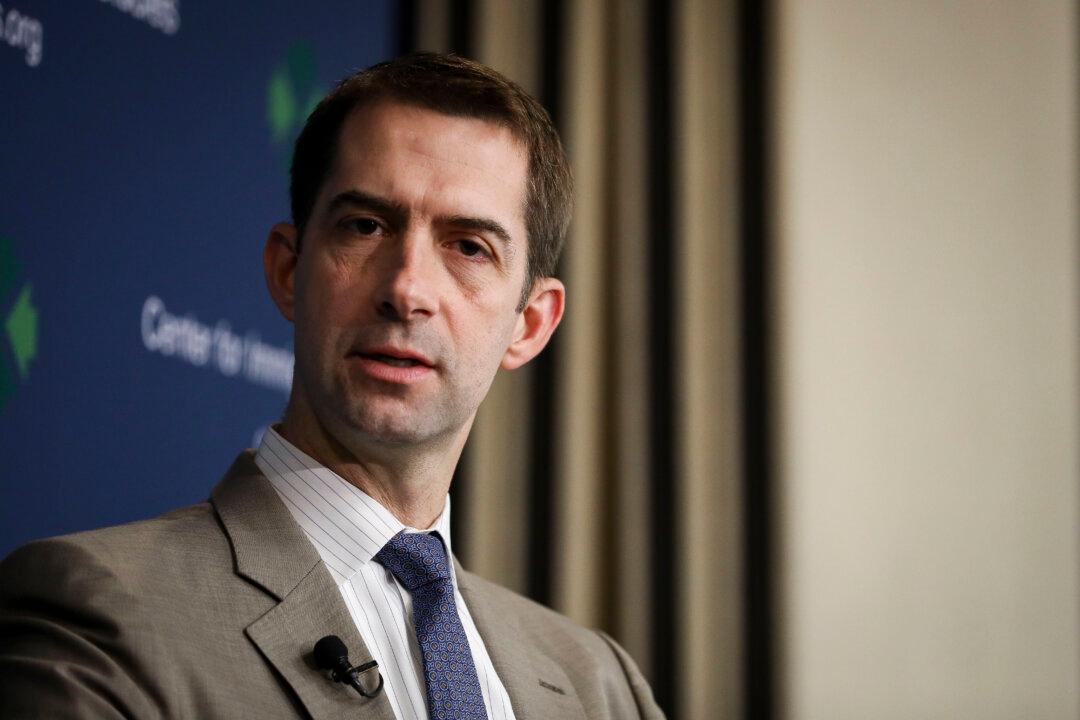WASHINGTON—The Chinese regime purposely infiltrates America’s universities and research laboratories with agents to try to steal national security secrets, according to Sen. Tom Cotton (R-Ark.).
“We shouldn’t be naive about that threat. And we should always err on the side of national security as opposed to beneficence on behalf of foreign students,” Cotton said during an event hosted by the Center for Immigration Studies on July 30.





